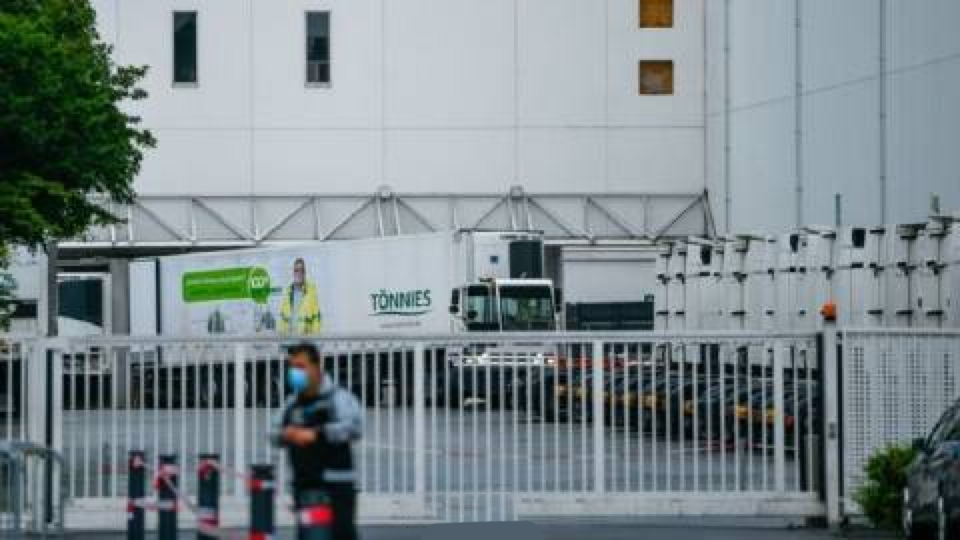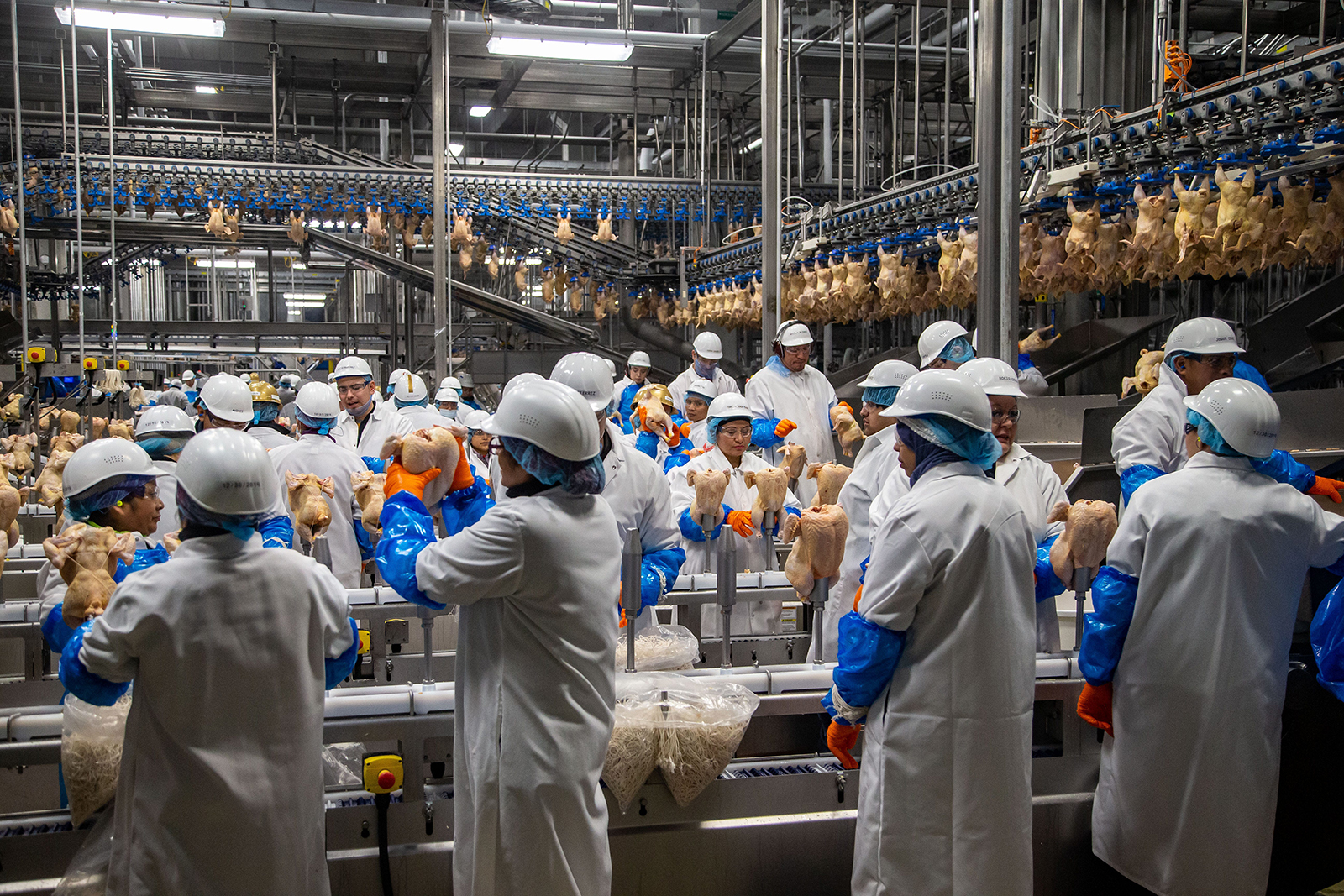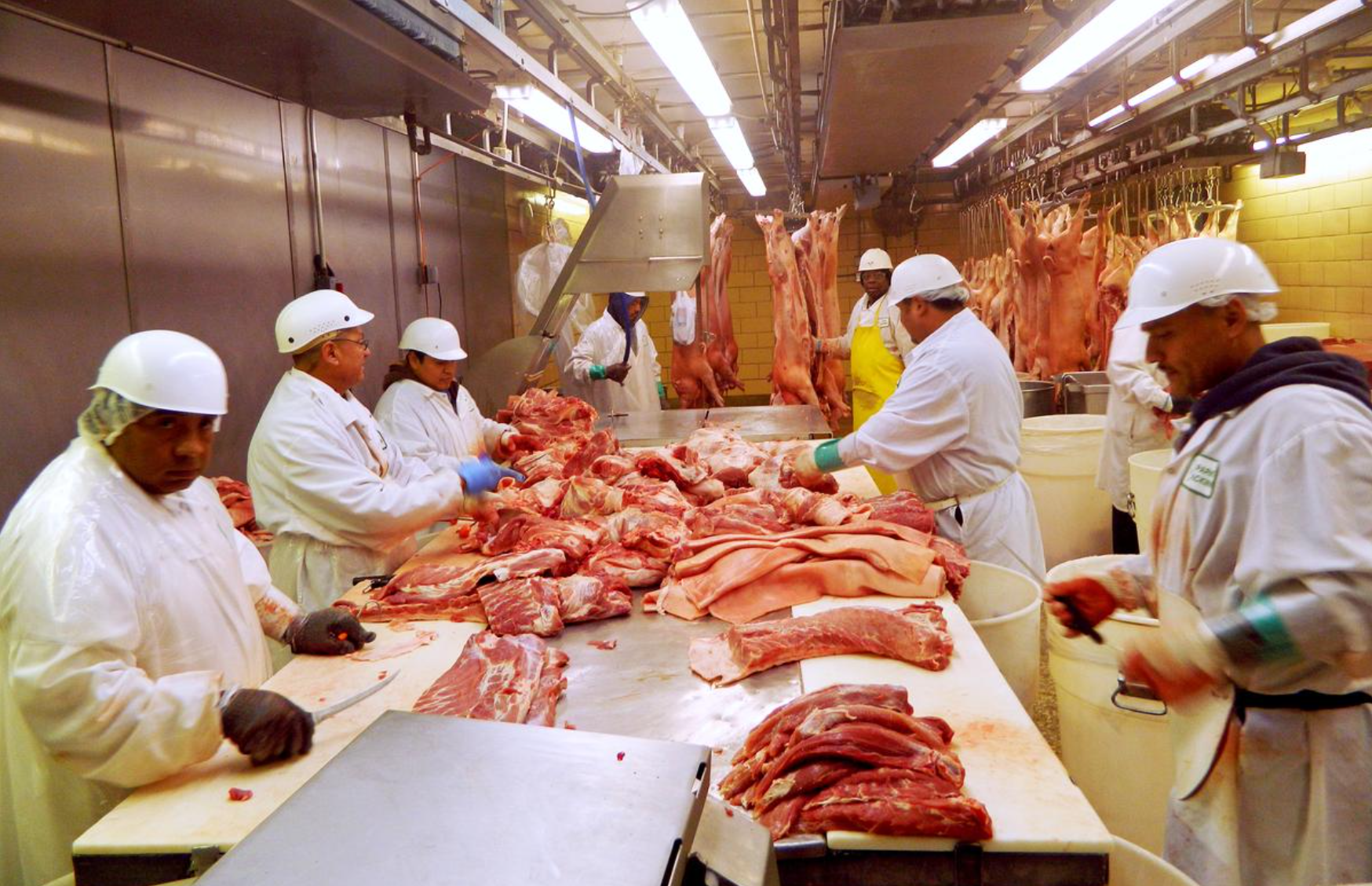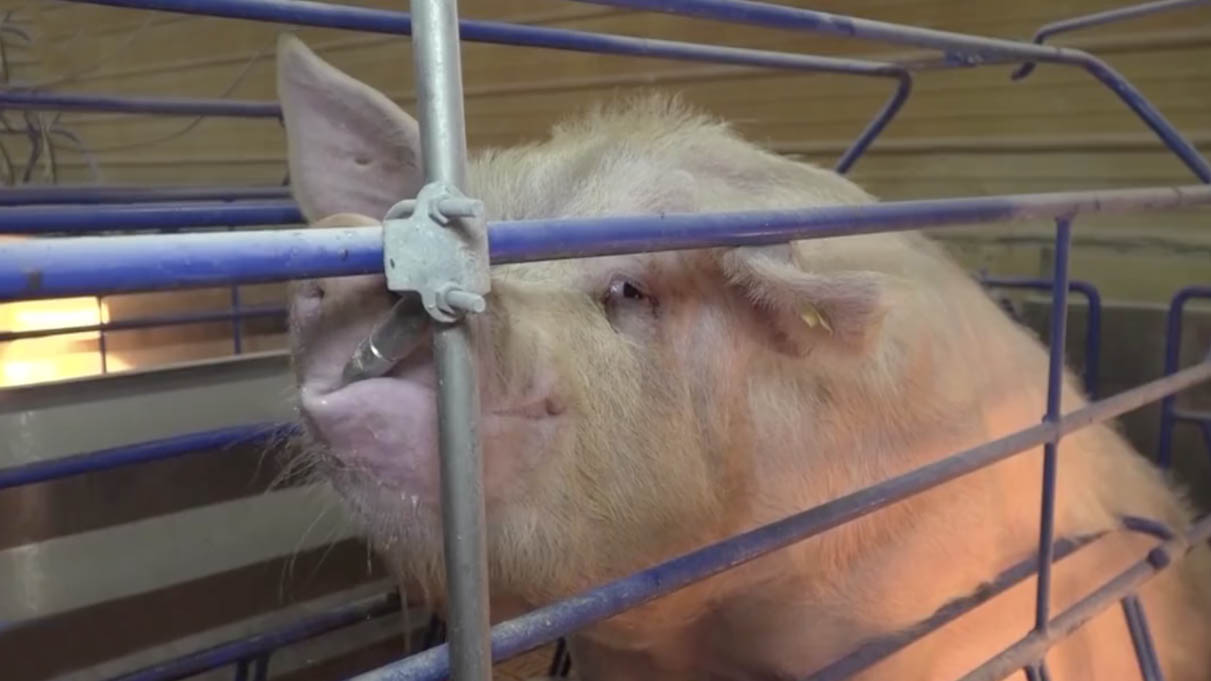Editor's note: This is the 81st article in the COVID-19 Global Roundup series. Here is the previous one.
00:35

Within months of the first meat factory outbreak in the U.S., European meat processing plants have become hotspots for the coronavirus.
Recently, more than 1,029 employees at a meat processing plant in North Rhine-Westphalia, Germany tested positive for the novel coronavirus. In the UK, the outbreak has emerged in at least three meat plants, which have closed after about 250 workers tested positive for the coronavirus.
Earlier this month, the Farm Animal Investment Risk and Return Initiative (FAIRR) listed over 44 of the 60 largest meat, fish and dairy companies across the world as "high risk" companies regarding the safety of food and employees in its report titled An industry infected: Animal agriculture in a post-COVID world.
The coronavirus outbreak in meat processing plants is not specific to Germany and the UK. The FAIRR report pointed out that as of May 20 in the U.S. alone, over 20,000 meat workers across 216 plants have become ill with COVID-19, and 70 meat industry workers have died. Large industry processors Tyson, JBS and Smithfield have together closed 15 plants.
As the pandemic unfolds globally, similar incidents have occurred in slaughterhouses, processing facilities and fresh food markets across the world, including Ireland, Spain, Australia, China, Brazil and Canada.
Why do fresh meat factories frequently become hotspots for the coronavirus outbreak? Different countries gave various explanations, but in general, the reasons include high-density working conditions, poor employment contracts and cold temperatures.

Workers process around 200,000 chickens a day for Costco at the Lincoln Premium Poultry plant in Fremont, Nebraska, February 27, 2020. /Reuters
Workers process around 200,000 chickens a day for Costco at the Lincoln Premium Poultry plant in Fremont, Nebraska, February 27, 2020. /Reuters
Is the working environment to blame?
Most experts agree that since the virus easily survives on cold surfaces, meat processing factories and slaughterhouses, with the absence of ventilation and sunlight, provide a perfect environment for the coronavirus to linger and spread. If one person gets infected with the coronavirus, the individual's virus-containing droplets will more likely stay viable and then spread among workers, they say.
Maria Lettini, executive director of FAIRR, told China Business Network (CBN) in an interview that given the current prevalence of asymptomatic patients and the reopening of businesses across the world, any industry that has a high concentration of workers is likely to have cluster contractions.
She told CBN that the specific working environment in meat processing plants is the key factor for contraction. She said processing workers work in a relatively confined space, have to process a lot of animal products, share the same ventilation system, create a lot of waste and consume a lot of water in the process, so the products and workers themselves are susceptible to various bacteria and the virus.
For meat processing plants, workers working in the same plant have to process a lot of animal products that need to be dealt with urgently due to the quantity of animals being processed and the speed of production lines. They're required to work side by side, often shouting in each other's ears to be heard over the noise. For them, social distancing is impossible when production is running at full speed.
However, some experts disagree. Zhao Dahai, the executive director of the Shanghai Jiaotong University-Yale University Joint Center for Health Policy Research, told reporters that the working environment is not the main reason behind these cluster coronavirus outbreaks. He believes the worker-meat-worker contagion chain is the prime culprit.
"In addition to person-to-person infections among meat factory workers, meat can also be contaminated by workers who are ill with COVID-19, so there is a vicious circle of people infecting people, people infecting meat and meat infecting people," Zhao said.
David Lindars from the British Meat Processors Association (BMPA) toldthe Independent that the real reason meat factories frequently become hotspots for the coronavirus outbreak is a "mystery."
He insisted that there is no scientific proof to show that the working environment in meat factories facilitates coronavirus outbreaks and said a meat plant is no different from other chilled food factories.

Workers cut pork at a slaughterhouse in Chicago, Illinois, July 18, 2015. /Reuters
Workers cut pork at a slaughterhouse in Chicago, Illinois, July 18, 2015. /Reuters
Modern-day slaves?
The meat factory outbreaks have raised public fear about more vulnerabilities and problems in the meat sector.
In Germany, many meat processing workers come from Eastern European countries, including Poland, Romania and Bulgaria, who speak little or no German and earn a pittance compared with their German colleagues. Many of these workers live together in close quarters and are often contracted by outside companies, which means they may not be protected by Germany's labor standards and wage regulations.
More than half of the 6,000 workers at the factory where over 1,029 people contracted the coronavirus are sub-contractors. The system allows the company who runs the meat factory to use cheap labor to produce more products, maximize profits and enhance its competitiveness in the global market.
Peter Schmidt, the head of international affairs at the German food workers union NGG, criticized the working conditions in these meat plants, describing them as "the absolute worst." He said people working for these factories, which provide mass accommodations to their workers, have to share beds and work 12 hours a day, likening workers to modern-day slaves.
Bev Clarkson, national officer at Unite the Union in the UK, known as Unite, also expressed her disappointment about meat processing factories that failed to protect the safety of their employees and the public. She said in a statement posted on the Unite website that although it's difficult for meat factory workers to keep social distancing, low wages and poor employment contracts could also play a role in the coronavirus outbreaks.
"Far too many staff are living hand to mouth on low wages and poor employment contracts. Many employers are refusing to provide any financial support for those presenting with symptoms, so it is inevitable that some staff will simply hope they don't have it and go into work. Employers have a duty to treat their staff better and stop the spread of the disease," Clarkson said in the statement.
02:48

Unlike Germany, the U.S. is much less dependent on sub-contract workers, but since the work is dirty, low-paid and exposes workers to zoonotic diseases, a large part of the U.S. workforce are migrants, refugees or people of color, making them more vulnerable than their counterparts.
Although at least 20,000 meat factory workers have become ill from COVID-19, U.S. President Donald Trump still invoked the Defense Production Act (DPA) to mandate that meat processing plants stay open during the pandemic. Under the act, meat production becomes a vital public service, and employers hold no legal liability when workers contract the virus during work.
According to the FAIRR report, due to the non-stop meat production, the U.S. meat industry has become the source of most of the new COVID-19 hotspots.
The outbreaks have spurred the German government to impose stricter regulations on the industry. Last month, the German government voted to ban the use of sub-contractors starting January 2021 and will impose heavy fines on companies that fail to comply. Some politicians are also thinking of introducing a minimum price system in terms of meat production, considered the "huge discrepancy between its actual value and price."
Experts believe the reform will slash the job opportunities for Eastern European workers and force meat companies to look for higher-priced physical laborers who are prepared to do the job.